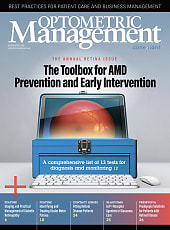In a previous article about audits, I discussed the steps to take when faced with one and the importance of creating a billing compliance program. In this article, I will discuss some government programs designed to scrutinize fee-for-service payments.
Recovery Audit Program (RAC):
The RAC audits are designed to detect and correct past improper payments, so CMS and Carriers can implement actions to prevent future improper payments. These audits help to prevent providers from submitting claims that do not comply with Medicare rules. Additionally, they lower CMS's error rate, and protect taxpayers and future Medicare beneficiaries. RAC employs auditors to identify and correct over or under-Medicare payments from randomly selected states to prevent future incorrect payments. Specifically, RAC auditors assess claims after payment using three types of review:
(1) Automated (associated medical record not needed)
(2) Semi-automated (data use and potential human review)
(3) Complex (medical record required)
The recovery auditor then issues the assessment to the health care provider, who can rectify the overpayment by paying by check, enable recoupment from future payments, implement a payment plan, or appeal the assessment findings.
Target Probe and Educate
This program combines a review of a sample of claims with education to help reduce errors in the claim submission process and includes all MACs.1 Specifically, CMS selects claims for items/services that pose the most significant financial risk to the Medicare trust fund and those that have a high national error rate. MACs then focus on providers/suppliers (identified through data analysis) with the highest claim error rates or billing practices that vary significantly from their peers. There are three possible rounds when you are the "target."
After each round, providers are offered individualized education based on the results of their reviews, helping them avoid similar errors later in the process. Providers can have staff present if desired. A "passing score" in early rounds could result in subsequent rounds being canceled by MAC. After round three, continued high error rates may be referred for additional action, including 100% prepay review, extrapolation, referral to a Recovery Auditor, or other action.
Supplemental Medical Review Contractor
One of the primary tasks of this program is to conduct a nationwide medical review as directed by CMS to determine whether Medicare claims were billed in compliance with coverage, coding, payment, and billing practices.2
Unified Program Integrity Contractors (UPICs)
This program detects, deters, and prevents fraud, waste, and abuse in Medicare and Medicaid claims. The UPICs perform integrity-related activities associated with Medicare Parts A and B, Durable Medical Equipment (DME), Home Health and Hospice (HH+H), Medicaid, and the Medicare-Medicaid data match program (Medi-Medi). UPICs work under the direction of the Center for Program Integrity (CPI) and may conduct interviews (beneficiaries, doctors, complainants) and onsite visits. They can start prepayment reviews, suspend payments, and refer findings directly to law enforcement. If you receive a letter from the UPIC, you should seek an attorney. OM
Other programs
The other CMS programs designed to scrutinize fee-for-service payments, include Comprehensive Error Rate Testing What’s the Comprehensive Error Rate Testing (CERT) Program? | CMS 3 and Medicare Advantage Organizations.
[1] CMS.gov. Center for Medicare and Medicaid Services Target Probe and Educate Targeted Probe and Educate | CMS (Accessed October 9, 2024)
[2] CMS.gov. Centers for Medicare & Medicaid Services. Supplemental Medical Review Contractor. https://www.cms.gov/research-statistics-data-and-systems/monitoring-programs/medicare-ffs-compliance-programs/recovery-audit-program/downloads/the-recovery-audit-program-and-medicare-slides-051313.pdf (Accessed October 9, 2024)
[3] CMS.gov. Centers for Medicare & Medicaid Services. Comprehensive Error Rate Testing (CERT). https://www.cms.gov/data-research/monitoring-programs/improper-payment-measurement-programs/comprehensive-error-rate-testing-cert (Accessed October 9, 2024)




